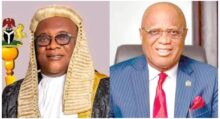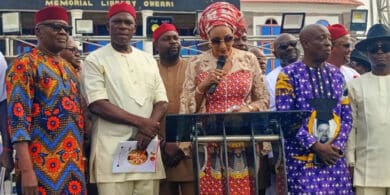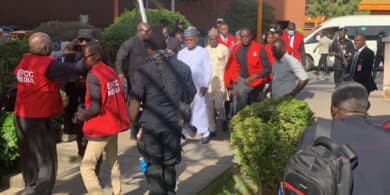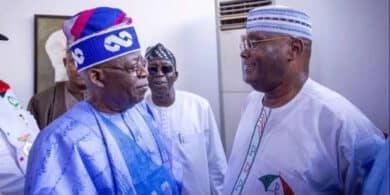#OndoDecides2024: Yiaga Africa alleges massive vote-buying
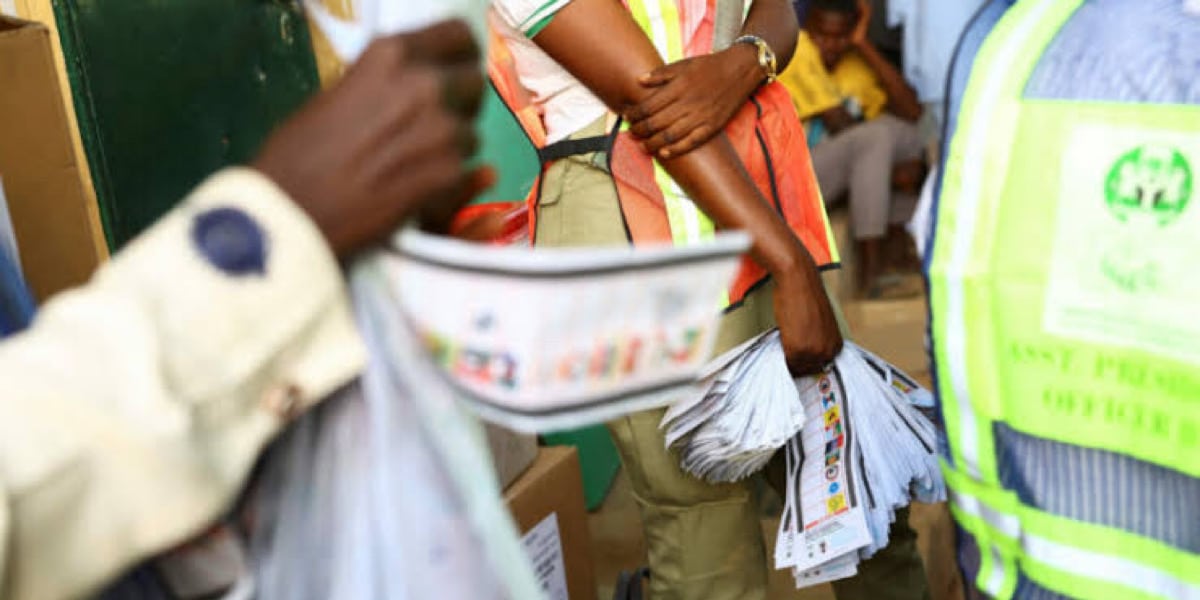
An election monitoring organization, Yiaga Africa, has reported that it deployed 300 stationary observers to 300 polling units throughout the 18 local government areas (LGAs) in Ondo State.
According to their findings, there were instances of vote buying during the recent governorship election.
This allegation raises serious concerns about the integrity of the electoral process, as it suggests that the principles of free and fair voting may have been compromised.
Yiaga Africa’s observations are crucial for understanding the challenges faced during the election and highlight the need for measures to combat electoral malpractice in future elections.
In its preliminary report, Messrs Ezenwa Nwagwu and Cynthia Mbamalu, Director of Programmes for Yiaga Africa stated that the election began “calmly and orderly, demonstrating citizens’ interest in participating peacefully.“
It, however, commended operatives of the Department of State Security (DSS) for “apprehending an individual allegedly involved in vote trading at the St. Stephen Polling Unit in Ward 4, Akure.”
The report reads: “As Yiaga Africa reported in its pre-election statement, the lead-up to the elections was relatively peaceful. On election day, the process began calmly and orderly, demonstrating citizens’ interest in participating peacefully. Citizens arrived early at their assigned polling units to cast their votes in the gubernatorial elections. Additionally, the Independent National Electoral Commission, INEC, and the transport union groups successfully deployed election officials and materials across the state. By 7:30 am, election officials had arrived at 71% of the polling units. By 9:30 am, accreditation and voting were underway in 91% of the observed polling units.
“Yiaga Africa observed widespread occurrence of vote buying across several polling units, which is becoming a permanent feature of our electoral process. We strongly condemn this practice, as it contributes to electoral corruption and political inequality. We commend the Department of State Security (DSS) for apprehending an individual allegedly involved in vote trading at the St. Stephen Polling Unit in Ward 4, Akure.
“Yiaga Africa firmly holds the political parties and candidates accountable for the negative trends observed in our elections. Political parties cannot distance themselves from the persistent issue of vote buying that continues to mar our electoral processes.
On INEC’s performance, it said: “The arrival of INEC officials and commencement of polls: Yiaga Africa observers noted the early arrival of INEC officials in the polling units observed. Our findings reveal that INEC officials arrived at 71% of the polling units by 7:30 a.m. By 9:30 am, accreditation and voting had commenced in 91% of polling units. The geographical distribution indicates that 93% of polling units in the Ondo Central Senatorial District, 95% of polling units in Ondo North, and 86% of polling units in the Ondo South Senatorial Districts commenced accreditation and voting by 9:30 a.m.”
On the deployment of materials, Yiaga Africa noted that “adequate deployment of election materials like register of voters, voting cubicle, official stamp, Ink pad, and indelible ink, in the opened polling units observed. Yiaga Africa also noted the deployment of assistive materials for persons with disability, with magnifying glasses deployed in only 28% of the polling units, PWD posters in 90% of polling units and PWD voter information and statistics (Form EC 40H) in 90% of polling units.”
On deployment of the BVAS, the onserver group observed that “every polling unit observed had a BVAS deployed. Additionally, Yiaga Africa noted that 6% of the polling units had two or more BVAS devices deployed. However, in 2% of polling units, the BVAS accreditation count was not shown to voters to confirm that it was set to zero before the start of accreditation and voting.
“Access to polling units for voters with disability: In 31% of polling units, individuals had to climb steps or cross over gutters to access the polling units, which made it difficult for persons with disability to vote with ease.”
Speaking on election infractions, it alleged that there was obstruction of election observation.
It said: “The presiding officer and security personnel were denied access to a Yiaga Africa observer deployed at Igbelowowa Methodist Primary School polling unit in Idanre LGA. They claimed they had not been informed that observers should be allowed to observe the process.
“Some frustrated voters disrupted voting at the Leo Hospital polling unit in the Owode/Imuagun ward of Akure South LGA due to the malfunctioning of the BVAS. Security operatives quickly arrived to calm the situation.
“The APC party agent stationed at the Odulufe, Omoke, Odosika, Ogubgobe polling units in the lleooluji II ward of lleoluji LGA was observed offering cash inducements of N20,000 to voters in exchange for their vote for the party. Unfortunately, security agents did not intervene to stop this action. Voters at the Ogun/Saruku Area polling unit in Ilara II ward, Ifedore LGA, revealed how they marked their ballot papers to agents of the APC party in exchange for cash gifts. The security personnel present did not respond to this situation. APC and PDP agents were observed bribing voters with cash incentives ranging from N5000 to N10,000 at the Elegiri/Ediro Compound polling unit in llara I ward, Ifedore LGA.”
“INEC should ensure strict adherence to the guidelines for results collation. Specifically, party agents, accredited media, and election observers should have access to the collation centers.
“Security agencies should remain professional and nonpartisan throughout the voting and results collation process. They should also impose appropriate sanctions for any violation of the Electoral Act on Election Day, especially any threat to the right to vote or attempts to buy votes.
“All electoral stakeholders, including citizens, the Independent National Electoral Commission (INEC), political parties and security agencies should remain committed to the peaceful completion of the election. This includes orderly conduct as the voting and counting process concludes at the polling units and the results collation commences at all levels.”


![Moment APC members boo out former lawmaker at Ibadan Youth Submit [Video]](https://www.gistreel.com/wp-content/uploads/2025/12/InCollage_20251217_165304723-220x119.jpg)
